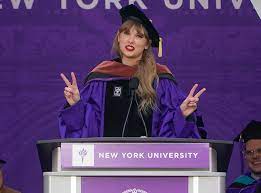 At KMA, we often meet with people who are entering the workforce for the first time, to offer career advice and tips for navigating the transition from student to employee, and in a sense, from child to adult. We asked the KMA team for their words of wisdom for job seekers, whether practical or aspirational, and we also spoke with Melissa Fowler, School Counselor at Greely High School in Cumberland, Maine, for her best advice to high school graduates.
At KMA, we often meet with people who are entering the workforce for the first time, to offer career advice and tips for navigating the transition from student to employee, and in a sense, from child to adult. We asked the KMA team for their words of wisdom for job seekers, whether practical or aspirational, and we also spoke with Melissa Fowler, School Counselor at Greely High School in Cumberland, Maine, for her best advice to high school graduates.
The guidance falls into five themes, and we end with a list of Ten Practical Tips for Starting Your Career (but it’s actually a good reminder to all of us, at any stage!).
1. Have patience with yourself.
Whatever your expectations might be for college or career, reality will beg to differ. Rising to the challenges of any new phase of life will be a process, and you need to give yourself the time and space to get there. Deb Bartol advises, “Be patient. Your career progression will not be linear; you will have many ups and downs along the way.”
As for the often sky-high expectations for transitioning from high school to college, Melissa Fowler also advocates for patience: “It’s probably not going to be perfect out of the gate,” she warns. “You might be homesick at first, and that’s ok. You might struggle with your academics at first, and that’s ok. Give yourself the time and grace to figure it out.”
2. Never stop learning.
Learning does not end when you walk away from your final final. Being a curious and life-long learner is essential for success – no matter what path you choose. As Jean Marchant puts it, “Our lives are a continuum of learning opportunities, so make the most out of every conversation, and listen intently.”
Engaged listening is another skillset that’s critical for success, especially when you’re navigating new territory. Holly Lancaster suggests, “Listen and learn from those around you, share your ideas, ask questions, and don’t be afraid to be wrong.” Anita Krieg encourages you to “take advantage of your opportunities to learn, including seeking out internships, mentoring, and training opportunities, and commit to being a life-long learner if you want to grow.”
3. You will make mistakes; learn from them and chalk it up to experience.
In our perfection-obsessed culture, learning to live with life’s inevitable mistakes isn’t easy. Many young people manage to get through high school with perfect grades (through a lot of incredibly hard work), but perfection isn’t sustainable – nor is it expected – in the real world. As Amy Harkins puts it, “We don’t learn from perfection, we learn from mistakes.” Doreen Bafumi advises, “Take each mistake you make as a learning experience on how to do better next time.”
It’s a wonderful thing to be confident in your abilities, but balance that with a dose of humility. If you’re going to own your successes, you also need to own your failures, so figure out what you need to learn from them and bank the experience for your future decisions.
4. Make use of your resources.
Whether you’re entering college or starting a new job, look for all the resources you have available and make good use of them – including your human resources! Find ways to connect with people in your immediate orbit, and beyond. Be open and able to communicate authentically. A good way to do this is to ask questions. Melissa Fowler urges her college-bound students to, “Get to know your advisor. Locate the career center, the tutoring center, mental and physical health services, or other resources you may need to tap into.” She talks about the importance of self-reliance, and how college students need to take on the responsibility of caring for themselves physically, emotionally, socially and academically – perhaps for the first time.
When you’re embarking on any new phase of life, you have a unique opportunity to let go of the past and redefine yourself. Whatever your goals are, figure out what you will need to achieve them, whether that’s additional training or certifications, cultivating a mentor, or educating yourself in your area of interest through seminars, books, podcasts, online research, etc. Make sure to let your manager know what you’re doing to develop your professional skills, and ask what resources are offered that could support your continued growth. “Being resourceful is a valuable skillset,” Gina Hayes wants you to know.
5. Be a professional.
Developing into a career professional is a process that may take years, but being a professional is really just a mindset. It boils down to the following principles: Take ownership of your work and always do your best. Treat others with respect. Communicate clearly and authentically. Focus on solutions, rather than problems. Be accepting of feedback and implement change where needed. Be a cheerleader for your fellow team members, and for your organization as a whole. When able, be a teacher or mentor in service to others. Come to work each day with a desire to both learn and contribute your very best.
As Anita Krieg puts it so well, “A lot of your success in the workplace relates to how you interact with others. Stay away from drama and gossip and seek to resolve conflicts in a productive way. Be the light.”
Ten Practical Tips for Starting Your Career
- Be completely truthful on your resume; don’t embellish.
- Complete your LinkedIn profile, and include a personal note when inviting connections.
- Always be on time, or a few minutes early.
- Make use of the thank you note; it’s an excellent way to leave a good impression.
- Dress appropriately – ask about dress codes if you’re unsure. First impressions matter.
- Be informed about current events. This doesn’t mean politics, but world events.
- Look for leadership opportunities; volunteer for committee positions, special projects, etc.
- Speak up in meetings, even if it’s just to ask clarifying questions.
- Understand the business you’re in as a whole, not just your specific part of it.
- Bookmark the KMA job board and Follow us on LinkedIn to stay on top of future career opportunities.
Congratulations, 2022 graduates, you did it! We wish you all the best on whatever you pursue next. We’ll give the last word to Taylor:

